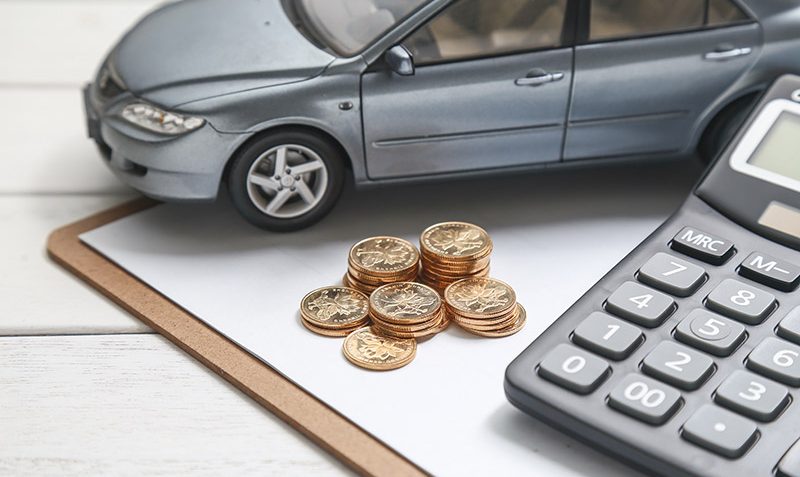|
Car insurance is a necessary expense for many people, and there are a variety of ways to save on this household cost once you know what it takes. To get started, gather your personal information, determine your budget and then consider the insurance coverage that you think will best safeguard you and your lifestyle.
Here are 10 ways to save on your car insurance: 1. Gather Specifics About Your Car and Its Primary Drivers One way to begin the process of shopping for car insurance to get the most value for your money is to gather all of the information an insurance carrier needs to offer you the best possible rate.1 Start by compiling this basic information before you shop for quotes:
With this information, an insurance carrier can suggest the best coverage and rates for you and your lifestyle. 2. Research How Much Car Insurance Costs Before You Buy or Lease When you buy or lease a car, it can be tempting to get a brand-new car or trade in your practical family vehicle for a sports car. Just keep in mind that the type of car you drive may impact your insurance coverage and rate. Be sure to check the cost of insurance before you finalize your car purchase or lease. Insurance rates may vary widely depending on the type of car, repair costs, safety record and many other subjective points.2 3. Research All Car Insurance Coverage Requirements Each state has specific requirements for car insurance coverage.3 Coverage may become more complicated when a financial institution owns the vehicle you drive, so if you’re taking out a loan to make the car purchase, keep in mind that the lender may require you to have specific insurance that might otherwise be optional.4 One example is collision insurance that pays for the repairs of damage to your car sustained during an accident. Another example is comprehensive coverage, which typically covers the loss of the car for theft, fire and other damage due to non-accidents. Find out what coverage you need and the cost before you buy or lease. 4. Decide What Additional Coverage You Need It may seem counter-intuitive but buying additional car insurance coverage may save you money. Weighing the options for additional coverage will help you to ensure you are well protected. Consider how your finances might be impacted if you're involved in an accident, and the injuries or damages exceed the amount covered by insurance. You purchase car insurance to help protect against the potential costs of a theft or accident, so be sure to talk to your insurance agent or carrier for professional guidance on the appropriate level of coverage for you. In addition, there are other coverage options that may save you money. What if your financed car is totaled? Can you afford to pay the entire loan? In this case, you may want to consider GAP insurance, which covers the difference between what your vehicle is currently worth, which is what your standard insurance typically will pay, and the amount you owe on it. Again, your insurance agent or carrier can help guide you through the available options. 5. Save Money with Accident Forgiveness Having a clean driving record is one thing that typically can help you to qualify for lower premiums. But there are times when even a good driver can have an accident. You may want to consider looking into potential savings through Accident Forgiveness and Minor Violation Forgiveness, if available in your state. These optional features can help you avoid a premium increase following your first covered accident or minor violation. There are also other features that can help provide peace of mind, such as Decreasing Deductible and a Total Loss Deductible Waiver. Ask your insurance agent about these plans, if you fit the bill as being a responsible driver because of your good driving record. Some carriers – in select states – also offer a program that uses smartphone technology to capture and score driving behavior of drivers covered on your policy, which could result in savings both in your first term and at renewal. It’s another option to explore when you’re a good driver and looking to save on your car insurance. 6. Determine What Car Insurance You May Not Need If you own an older car and are looking to trim your expenses, you may consider dropping collision and comprehensive coverage. You’ll want to consider how much your older car is worth when you consider the cost of your premium including collision and comprehensive coverage. Be sure to also consider your individual driving situation to base your cost-cutting efforts on all the factors that could help you determine if this is a wise choice for you. With an older car, you may be paying premiums that total more than your car's value. Typically, if your car is worth less than 10 times the insurance premium, it may not be cost effective to keep that part of your coverage. 7. Life Cycle Events Can Save Car Insurance Costs One thing you can count on is that life will sometimes bring changes in your lifestyle and circumstances, so it’s smart to consider how these changes may or could affect your car insurance costs. For example, did your child go away to school? Perhaps there’s a Student Away at School discount you can explore. Did you buy a home? Maybe you can explore a Multi-Policy Discount and get the benefit of bundling your policies. These are some of the events that may help lower your car insurance rate. It’s a good idea to notify your car insurance agent when you have a major life event such as these, to have a conversation to ensure you’ve got the best coverage for your current life needs. 8. Choose the Deductible That Is Right for You Your car insurance deductible is the amount you’ll pay out of pocket before your insurance kicks in. The lower the deductible, the less you’ll pay out of pocket if an accident occurs. Selecting a higher deductible may lower your car insurance premiums. For example, if you choose a $1,000 deductible and have an accident causing $2,000 in damage, you would pay the first $1,000 of a covered loss before insurance kicks in. 9. Compare Car Insurance Companies and Costs With many things we buy nowadays there are choices. Many of us wouldn't think of buying a product or service without comparing prices, the value you get for your money, and the reputation of the provider. You may want to consider using the same philosophy when you purchase car insurance. Do your homework and then talk to your insurance agent or carrier about what your needs are.8 10. Ask Your Agent About Available Discounts It’s a good practice to check in with your insurance agent at least annually to find out if you are eligible for a better car insurance rate. You may receive discounts if you bundle coverage, such as buying insurance for your home and car from the same company. As mentioned earlier, safe driving records and extra safety features on a car may also lower rates. Ask your insurance agent about any new offerings or gaps in your coverage to determine the best coverage for you. Now that you’ve got some ideas on how to save on your car insurance, you may want to check with your carrier to review your coverage.
1 Comment
4/12/2023 03:41:03 pm
I'm buying my first car in a few weeks, so I want to know how to find the right insurance policy to protect it and myself. That's why I'm glad you explained that we'd compare car insurance companies and their costs first, so I'll definitely start there. Thank you for the advice on checking the reputation of an insurance provider before working with them.
Reply
Leave a Reply. |
better Insurance
|
-
HOME
- Send me a Home Insurance Quote >
- FLOOD Insurance, Massachusetts >
- Cape Cod Home Insurance
- Pay Your Home Insurance Bill Online
- Ordinance or Law Coverage
- How to Prevent a Claim on your Home Insurance Policy
- Videos - Cape Cod Real Estate Tips >
- Cape Cod Massachusetts Arbella Insurance Discounts
- Cape Cod Massachusetts Lloyds of London Home Insurance
- Safety Insurance Discounts for Cape Cod, Massachusetts
- MPIUA - MA Property Insurance Underwriting Association "Fair Plan"
- Cape Cod Massachusetts Home Protection Insurance
- Hurricane Preparedness >
-
AUTO
- Send me an Auto Insurance Quote for Cape Cod, Massachusetts
- BOAT Insurance >
- Cape Cod, MA Dept. of Motor Vehicles
- Cape Cod Massachusetts - Report an Auto Insurance Claim
- Auto Insurance Quote - CAR BUYING TIPS : Auto Insurance for Cape Cod, MA
- InControl Driver Training
- Car Insurance for Cape Cod Massachusetts - Arbella Insurance - Send me an Auto Quote >
- Plymouth Rock - Send me an Auto Quote >
- Encompass Insurance Discounts
- Safety Insurance - Send me an Auto Quote >
- Travelers Insurance Discounts
- Progressive Insurance - Send me an Auto Quote
- LIFE
- OFFICES
- ABOUT US
- Stay Home
- Home Insurance Explained
- Agent Login
- Privacy Policy
- Videos - Cape Cod Real Estate Investing, Taxes & Insurance
- Videos - Cape Cod Coastal Real Estate
- Português
Arthur D. Calfee Insurance Agency, Inc. is a friendly local insurance agency proudly offering Massachusetts, Cape Cod and the Islands. A-Excellent AM Best rating, A+ Excellent by the BBB
Using innovative thinking, cutting-edge tools and expert resources at national and local levels, we deliver the best possible outcome on every policy we manage. Need Home Insurance? Easy, Fast, & Secure Home Insurance. Get Free Quotes 100% Online Now! Available 24/7. Affordable Rates. Cover Your Biggest Investments. Get a homeowners insurance quote, find coverage options. We'll help you understand and customize the right home insurance coverage for you.
Home is where your heart is—along with a healthy chunk of your net worth. Get started today with a free homeowner's quote.
Compare home insurance quotes today and save on protection for your biggest investment. Build a Custom Policy & Make the Switch! Our local underwriting professionals focus exclusively on finding the best home insurance, homeowner's insurance, hazard insurance, investment property insurance, flood insurance, flood zone information, vacation home insurance, second home insurance, auto insurance, collector car insurance, business insurance, general liability insurance, property insurance, professional liability insurance, contractor's liability insurance, worker's comp insurance, key man insurance, whole life insurance, term life insurance, group or personal disability, & long-term care insurance policies to patrons in the following Cape Cod, Massachusetts towns, communities and villages: Barnstable, Bourne, Pocasset, Brewster, Buzzards Bay, Centerville, Chatham, Cotuit, Craigville, Dennis, East Dennis, Eastham, Falmouth, East Falmouth, Hatchville, West Falmouth, North Falmouth, Woods Hole, Harwich, Hyannis, Hyannisport, Martha's Vineyard, Nantucket, Marstons Mills, Mashpee, Orleans, Osterville, Provincetown, Sandwich, Sagamore, Sagamore Beach, Truro, Wellfleet, Yarmouth, and Yarmouthport. Real-Time Pricing. Insurance coverage: Wind Damage, Fire Loss, Water Damage. Protect your home and belongings. Low Rates For Your Best Options to Save Money On Great Coverage! Get a quote today. Home insurance helps protect your house and your family.
Using innovative thinking, cutting-edge tools and expert resources at national and local levels, we deliver the best possible outcome on every policy we manage. Need Home Insurance? Easy, Fast, & Secure Home Insurance. Get Free Quotes 100% Online Now! Available 24/7. Affordable Rates. Cover Your Biggest Investments. Get a homeowners insurance quote, find coverage options. We'll help you understand and customize the right home insurance coverage for you.
Home is where your heart is—along with a healthy chunk of your net worth. Get started today with a free homeowner's quote.
Compare home insurance quotes today and save on protection for your biggest investment. Build a Custom Policy & Make the Switch! Our local underwriting professionals focus exclusively on finding the best home insurance, homeowner's insurance, hazard insurance, investment property insurance, flood insurance, flood zone information, vacation home insurance, second home insurance, auto insurance, collector car insurance, business insurance, general liability insurance, property insurance, professional liability insurance, contractor's liability insurance, worker's comp insurance, key man insurance, whole life insurance, term life insurance, group or personal disability, & long-term care insurance policies to patrons in the following Cape Cod, Massachusetts towns, communities and villages: Barnstable, Bourne, Pocasset, Brewster, Buzzards Bay, Centerville, Chatham, Cotuit, Craigville, Dennis, East Dennis, Eastham, Falmouth, East Falmouth, Hatchville, West Falmouth, North Falmouth, Woods Hole, Harwich, Hyannis, Hyannisport, Martha's Vineyard, Nantucket, Marstons Mills, Mashpee, Orleans, Osterville, Provincetown, Sandwich, Sagamore, Sagamore Beach, Truro, Wellfleet, Yarmouth, and Yarmouthport. Real-Time Pricing. Insurance coverage: Wind Damage, Fire Loss, Water Damage. Protect your home and belongings. Low Rates For Your Best Options to Save Money On Great Coverage! Get a quote today. Home insurance helps protect your house and your family.
Testimonials & Endorsements for the Best Insurance Agent on Cape Cod, MA
PHONE: (800) 479-2601 CUSTOMER SUPPORT & SERVICE
Please note: The above is meant as general information to help you understand the different aspects of insurance. This information is not an insurance policy, does not refer to any specific insurance policy, and does not modify any provisions, limitations, or exclusions expressly stated in any insurance policy. Descriptions of all coverages and other features on this page are necessarily brief; in order to fully understand the coverages and other features of a specific insurance policy, we encourage you to read the applicable policy and/or speak to an insurance representative. Coverages and other features vary between insurers, vary by state, and are not available in all states. Whether an accident or other loss is covered is subject to the terms and conditions of the actual insurance policy or policies involved in the claim. References to average or typical premiums, amounts of losses, deductibles, costs of coverages/repair, etc., are illustrative and may not apply to your situation. We are not responsible for the content of any third-party sites linked from this page.
© 2024 Copyright, Arthur D. Calfee Insurance Agency, Inc.
Calfee Cares.® Privacy Policy
Calfee Cares.® Privacy Policy







 RSS Feed
RSS Feed











